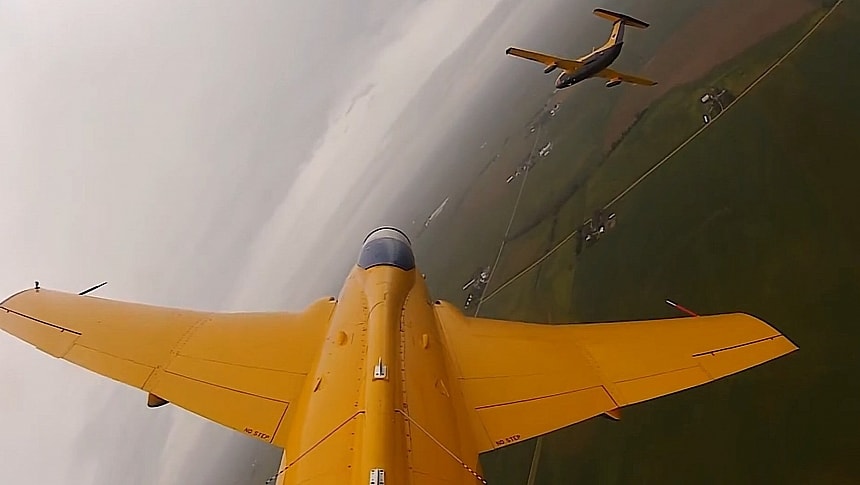Artificial intelligence (AI) is slowly and surely making its way into our lives, and most of the time that will be a good thing. After all, AI is only a tool meant to make our lives easier. But what happens when the said tools will learn to fight?
Several AI systems are currently being tested for various military uses, including at the hands of the famous Lockheed Martin Skunk Works, so I'm quite used to hearing about the technology progressing. But I have to admit, this is the first time I've heard about an AI being "intentional and decisive in its actions."
The AI that is described this way is being developed by Lockheed Martin, more specifically its highly secretive Skunk Works division. That means we don't know everything we would want to know about it, but just enough to get us all excited, hopeful, and scared at the same time.
The computer mind was flown at an undisclosed time and location on board an Aero L-29 Delfin jet, a military trainer made in Europe between 1963 and 1974. The goal of the flights was to see if the AI could handle itself and the plane, owned by the University of Iowa's Operator Performance Laboratory (OPL), in air-to-air intercept scenarios.
There were no less than eight tests conducted per flight (it's unclear how many times the computer-piloted Delfin took to the sky), in a bid to "exercise the AI agent in a variety of situations."
That included head-to-head fights, off-aspect encounters, missile support, and missile defeat. In many of these missions, the AI flew and conducted the tactical exercises by itself. By flew I mean the thing had control over the plane's heading, speed, and altitude commands.
The flights of the AI have been deemed successful, as the system performed even better than it did in simulations, and that marks a "significant milestone for Skunk Works' Tactical AI team." And more lies on the horizon.
Skunk Works says the AI currently being put through its paces is part of a broader effort aimed at developing and testing AI-driven autonomy for air-to-air aircraft missions. That means we'll get to see some more flights later this year, each of them bringing a new level of complexity.
More specifically, Lockheed Martin plans to send more aircraft in the air to make air combat scenarios more complicated, thus potentially teaching the AI whole new tricks.
Despite the advancements made in this field, and in an effort to calm those of us who see this as a potential end of days, the American defense contractor stated that no matter how advanced the AI, humans will always call the final shots when it comes to certain courses of action.
The AI that is described this way is being developed by Lockheed Martin, more specifically its highly secretive Skunk Works division. That means we don't know everything we would want to know about it, but just enough to get us all excited, hopeful, and scared at the same time.
The computer mind was flown at an undisclosed time and location on board an Aero L-29 Delfin jet, a military trainer made in Europe between 1963 and 1974. The goal of the flights was to see if the AI could handle itself and the plane, owned by the University of Iowa's Operator Performance Laboratory (OPL), in air-to-air intercept scenarios.
There were no less than eight tests conducted per flight (it's unclear how many times the computer-piloted Delfin took to the sky), in a bid to "exercise the AI agent in a variety of situations."
That included head-to-head fights, off-aspect encounters, missile support, and missile defeat. In many of these missions, the AI flew and conducted the tactical exercises by itself. By flew I mean the thing had control over the plane's heading, speed, and altitude commands.
The flights of the AI have been deemed successful, as the system performed even better than it did in simulations, and that marks a "significant milestone for Skunk Works' Tactical AI team." And more lies on the horizon.
Skunk Works says the AI currently being put through its paces is part of a broader effort aimed at developing and testing AI-driven autonomy for air-to-air aircraft missions. That means we'll get to see some more flights later this year, each of them bringing a new level of complexity.
More specifically, Lockheed Martin plans to send more aircraft in the air to make air combat scenarios more complicated, thus potentially teaching the AI whole new tricks.
Despite the advancements made in this field, and in an effort to calm those of us who see this as a potential end of days, the American defense contractor stated that no matter how advanced the AI, humans will always call the final shots when it comes to certain courses of action.






